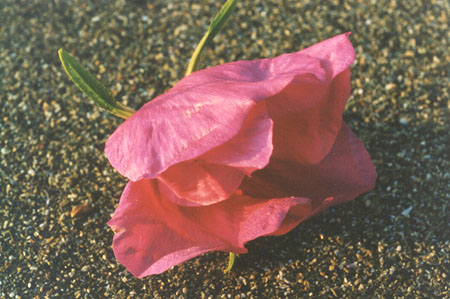

Having woken and dressed so early, I drove to the trail road and walked. Listened to the ovenbirds, a white-throated sparrow. Finally saw a yellow-rumped warbler; somehow, "myrtle" (its old name) is much easier and more musical to say. A glimpse of what might be a blackburnian warbler and, faintly, the voice of a hermit thrush.
Jack-in-the-pulpits have risen in the past week. Yellow violets opened. Spring beauties with their pink-white bowls of petals. Blue cohosh rising tall. The air was incredibly fresh-tasting, chilly, slightly misty, with the sun slowly warming the day.
And I cannot imagine how it is that the soul that I am is any more worthy of being born and living in this place than the soul of a woman is worthy of being born in Iraq and living now in the reek of filth and rotting things, the screams of injured and dying.
I pour a glass of water and think of children in Iraq and many other places who have little water to drink and unclean, unhealthy water to boot.
The gross inequities between people's life conditions have been endemic for millennia. The ruling powers of ancient Sumer and Egypt, the ruling powers of the Middle Ages and the Renaissance, the vast distance between them and the slaves and serfs and other poor, landless people is echoed by the corporate oligarchies of our time and the millions of people who have nothing or next to it.
Remembering the God in Walsh's Conversations with God books who describes each soul as having a contract to journey toward more remembering of the soul-life with the God-Spirit and making that memory more and more real during its sojourns on earth until heaven is on earth. But, with six billion plus souls on earth right now, I wonder, will the God-Spirit run out of souls or will the earth run out of resources first?
Has humanity come this far before?
Graham Hancock surmises that the astronomy of the Pyramids, of Angkor Wat, of Chichen Itza relates to the star positions of even more ancient times. Computer programs can "run" the movements of the great constellations backwards through time, so that one can determine what stars could be sighted through the shafts of the Great Pyramid of Egypt at any given time. Hancock surmises that the Pyramids, while built 3500 years ago or thereabouts, just might have been putting in stone the information from thousands of years before that. In fact, 12,500 years ago, when perhaps there was such knowledge that needed to be saved and passed on in the face of a rapidly changing earth surface and cultural destruction.
But that's a slight digression.
When Starhawk describes the beautiful garden with olive, date, and fig trees in the household of a Palestinian woman's family, she is also describing the horridity of having that home smashed and garden destroyed simply because it is a Palestinian's.
And I —I am blessed with the song of a bobolink in a nearby field. Catbird's meandering repertoire, wren's gurgly song, red-eyed vireo's repeated phrases.
I live surrounded by great beauty, particularly in this time of greening trees and wildflowers and garden flowers and returning birds. Those are all things that give me joy. But the world has many to whom a cup of clean water would be a miracle, to whom a peaceful night's sleep would be a great gift.
Not enough people have remembered how to create heaven on earth, but we're doing very well at creating hells.
Blessings,
Cherie